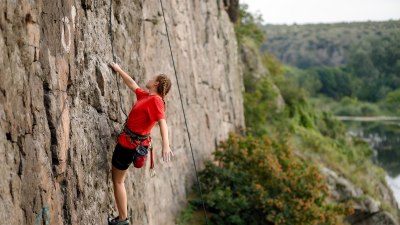Why Some of the Best Travel Lessons Come From the Past
Explore valuable travel lessons derived from historical experiences and how they can enhance modern adventures.

Image by drazenzigic on Freepik
Travel is one of the most enriching experiences one can undertake. It opens up doors to new cultures, perspectives, and connections that significantly broaden our horizons. However, while modern travel offers a variety of conveniences and technological advancements, some of the best lessons we learn as travelers are derived from the past. History is filled with stories of exploration, adventure, and the human spirit, and these tales often provide insights that are still relevant today. Understanding these lessons can enhance our travel experiences and provide deeper meaning to our journeys.
The Essence of Exploration
The courage to explore the unknown has been a fundamental aspect of human nature since time immemorial. Ancient explorers like Marco Polo and Ibn Battuta set out on journeys that lasted years, often under perilous conditions, to discover lands previously unknown to their societies. In doing so, they not only expanded the geographical knowledge of their times but also facilitated cultural exchanges that shaped civilizations. Modern travelers can learn from their spirit of adventure; stepping out of our comfort zones and embracing the unknown enriches our lives. We can use their stories as motivation to seek out new destinations, interact with different cultures, and participate in unique experiences.
Travel and Cultural Exchange
One of the most important lessons from the past is the importance of cultural exchange. Historical interactions, such as the Silk Road trade routes, exemplify how travel facilitated the sharing of ideas, goods, and customs. This exchange was often a two-way street: traders and travelers alike learned from each other, fostering goodwill and understanding between diverse groups. In today's global landscape, we can continue this tradition of cultural exchange by engaging with locals, trying regional cuisines, and learning about customs and traditions. Such interactions can break down barriers and cultivate mutual respect, leading to more meaningful travel experiences.
Embracing Adaptability
Travelers in the past had to embrace adaptability to navigate through unforeseen circumstances. Whether it was dealing with harsh weather, political unrest, or health issues, historical figures adapted to their environments, showcasing resilience and resourcefulness. For example, the explorers faced numerous challenges during their expeditions but learned to find creative solutions to overcome them. As modern travelers, we too must embrace adaptability, whether it's changing our itineraries, discovering alternative routes, or simply going with the flow. The ability to pivot when things don't go according to plan can transform potential frustrations into incredible stories and experiences.
The Value of Local Wisdom
In the past, the importance of local wisdom was paramount during travel. Travelers relied on the knowledge of locals to navigate foreign lands, whether through oral traditions or written guides. Ancient texts documented valuable insights about routes, accommodations, food, and cultural practices. Today, we can still tap into this wellspring of wisdom by speaking with locals, participating in guided tours, or seeking out community-based experiences. Such interactions often reveal hidden gems not found in guidebooks and provide a richer understanding of the destination.
Fostering Empathy Through Historical Context
Traveling to historical sites allows us to connect with the past in profound ways. Visiting places like the Colosseum in Rome or the pyramids in Egypt, for example, provides context to our understanding of human history, struggles, and achievements. Engaging with historical narratives fosters empathy, helping us appreciate the complexities of different cultures and societies. By reflecting on their stories, we can gain insight into contemporary issues and foster open-mindedness. Moreover, such experiences can be transformative and inspire us to be more active global citizens.
Environmental Awareness and Sustainability
The environmental lessons from past societies highlight the importance of sustainability in our travel practices. Many ancient civilizations, like the Indigenous peoples of North America, understood the need to preserve their natural resources and live in harmony with nature. Their lifestyles were often focused on sustainability, preserving ecosystems for future generations. In modern times, this lesson is particularly vital as we confront environmental challenges. Practicing eco-friendly travel, supporting sustainable tourism initiatives, and respecting local ecosystems pays homage to these historical lessons. Travelers today have the responsibility to ensure their activities do not harm the environment, contributing to a more sustainable future.
Documenting the Journey
The habit of documenting travels dates back centuries, with explorers crafting detailed accounts of their adventures. These records not only served as navigational tools but also as ways to share knowledge and experiences with others. Drawing from this tradition, modern travelers can enrich their journeys by capturing their experiences through writing, photography, or art. The act of documenting helps us reflect on our travels, understand what we’ve learned, and share our insights with others. These narratives contribute to the collective memory of travel, allowing future generations to benefit from our experiences.
Planning vs. Spontaneity
In the age of meticulous trip planning, it's easy to overlook the spontaneous moments that can lead to unforgettable experiences. Histories of travelers often highlight serendipitous encounters and unexpected detours that became defining moments of their journeys. For instance, an unplanned conversation with a local or a sudden change in direction can open doors to unique adventures. Incorporating flexibility into our travel plans allows us to embrace spontaneity, enrich our understanding of a place, and create lasting memories that are often the most cherished.
Maintaining an Open Mind
Historically, great travelers were often those who approached their journeys with an open mind, setting aside preconceived notions to embrace new experiences. Cultures around the world vary dramatically, and past explorers taught us the significance of cultural relativism—the idea that one should understand a culture on its own terms rather than judging it by the standards of one's own culture. As modern travelers, we must adopt this mindset to fully appreciate and respect the diverse experiences of others, allowing our travels to be transformative and enlightening.
The Non-Linear Path of Travel
Travel rarely follows a straight path, as evidenced by both historical and contemporary experiences. Many explorers embarked on their journeys with a single destination in mind, only to find themselves sidetracked by fascinating detours along the way. Embracing the non-linear nature of travel can lead to unexpected adventures that may end up being the highlight of our experiences. By letting go of rigid itineraries and embracing spontaneity, we open ourselves to a world of possibilities that can shape our understanding of a place and its people.
A Personal Journey
As we reflect on travel lessons drawn from history, it becomes clear that these insights can significantly shape our modern adventures. The tales of explorers, cultural exchanges, adaptability, and sustainable practices remind us of the enduring power of travel. By applying these lessons to our journeys, we not only enhance our experiences but also cultivate a greater appreciation for the world and its diverse cultures. Our travels are not merely about reaching a destination; they comprise a tapestry of experiences that connect us to history, culture, and humanity itself. In a world that continually evolves, the wisdom gleaned from the past remains invaluable, guiding us toward enriched travel experiences that resonate deeply within us.











